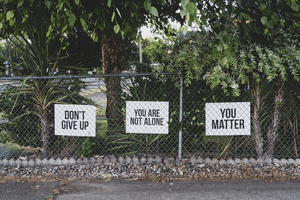Whether or not an employee can be fired for drug or alcohol addiction is difficult without an easy answer. If the addiction prevents the employee from doing their job effectively and safely, they can be fired for the actions resulting from their addiction. If their addiction causes them to miss work or show up late to work frequently, they can be fired. There are conditions in which it may be difficult to fire an employee due to a drug or alcohol addiction. Most employers want to find a solution that will benefit both the employee and the company, helping the individual overcome their addiction.
Here are a few avenues that may prevent an employee from being fired.
Know your rights as an employee.
Lawyers like Malliha Wilson have committed their careers to defending human rights and helping individuals live better lives. Wilson has focused on labour law litigation and has years of experience working with the Ministry of Labour in Canada. If you feel your employer is unfairly targeting you due to addiction issues, you should talk to a lawyer to better understand your rights. Being diagnosed with addiction by a medical professional makes it an apparent medical condition, which can protect you from discrimination. However, your actions resulting from the addiction can still lead to your termination.
The employer suggests rehabilitation.
An employer may give their employee the opportunity to go to a rehabilitation facility to address their addiction issues without fear of losing their job. California Rehab Campus is a residential treatment center that offers a calm environment for people seeking life-long recovery. They work with a wide range of people struggling with a substance use disorder, providing a calm environment with beautiful weather, and those who take full advantage of the program can start the journey to successful recovery. Clients get chemical dependency counseling to deal specifically with their drug addiction or alcohol addiction. They also get the benefit of behavioral health care to address all areas of their lives.
The employee requests a medical leave of absence.
If an employee wants to get help for their drug addiction but doesn’t want to directly talk to their employer about it first out of fear of being fired, they can apply for family and medical leave and get up to 12 weeks off of work without fear of losing their job. With that time, they can choose to attend an inpatient residential treatment center like California Rehab Campus, or they can choose an outpatient treatment facility that offers services like intensive outpatient (IOP) counseling. Intensive outpatient counseling provides a high level of counseling, support, and care while allowing the patient to stay home with family. It is difficult to say which is the better path because it depends on the individual. The best path is often to start with inpatient for 30 to 60 days and then transition to outpatient for the remaining time. Following the 12 weeks of intensive addiction treatment, it is important to get involved with a recovery community or recovery organization to get ongoing sober support.
Drug or alcohol addiction is a real medical condition that needs to be treated as such. While people often see it as a behavioral issue, science has proven otherwise. Inpatient treatment facilities have medical staff who understand how addiction impacts the brain and utilize proven methods to help individuals overcome their addiction. While there is no cure, people can learn to live a life in recovery. Learning how to accept and process emotions without chemicals is a key lifestyle change that needs to be made for successful recovery.



